You see a story about an Ebola breakout at the Burning Man festival, and you know it’s bullshit. But you’re still going to read it. You’re only human.
A thinking person might wonder how such obvious nonsense becomes a trending story worldwide. Well I’m going to tell you exactly how: Gresham’s Law.
Gresham’s law explains that the bad crowds out the good, and it’s never been more true than on social media.
Here is Gresham’s Law of Lemons, as described to me by my friend Rich: you keep a good car for 200k miles, it never goes up for resale. But if you bought a lemon, you take it back to the dealer within a month. So the used car market is disproportionately flooded with lemons.
And here is Gresham’s Law of Lemons, as described to me by my friend Colin and paraphrased four years later by me: all the good ones, Phil, the good ones have been scooped up. I’m eternally dating the girls who’ve been passed over.
*I uncharacteristically held my tongue and didn’t point out that he himself is in said dating pool
Again, here is Gresham’s Law of Lemons: the bad recirculates, and it crowds out the good.
I still think about the meme stock frenzy a lot. If you believe that it was spontaneous and coordinated by small-pocketed amateur investors, then I’ve got a gamma squeeze to sell you.
I’ve been trying to coordinate a fantasy football draft online which has proved unachievable - let me assure you that strangers on the internet with odd-lot orders are not capable of orchestrating a short squeeze in a liquid public market.
A very deep pocketed fund with an understanding of how options trading impacts spot market-making? Sign me up for that conspiracy theory.
And what became of the meme stocks? Let’s say for a minute that my conspiracy theory was right, who provided the exit liquidity for the bandits to make off with?
You probably know. You should know. And the amazing thing, not only do we know, THEY know. They know and they don’t care.
I am of course referring to index investors who willingly signal to anyone who will listen that they are buying the highest market caps, that they trust the market to set prices accurately (LOL), and they do it with the smug satisfaction that they have “solved” investing.
Can you call them bagholders when they so willingly hold the bags?
And hold the bags is exactly what they did.
And this:
This trip down memory lane brings us to today, to Gresham’s Law of Lemons, and to index fund investors who just can’t spot the sucker at the table. It all brings us to this karmic moment of market poetry:
Take a moment. Let’s all pause and just take a moment. You wouldn’t walk by the Mona Lisa without a glance, and you shouldn’t just scroll by this announcement. This is art.
Let’s start with Airbnb, shall we? And to do that I’ll have to introduce you to my friend Amy Nixon.
There isn’t an analyst on Wall Street, there isn’t a journalist, there isn’t a short seller, there isn’t anyone on the planet who has done more to expose and explain the bubble known as Airbnb.
If you want to go deep you can start here with her breaking down her Airbnb thesis with Wealthion’s Adam Taggart:
We can talk about over-leveraged Airbnb property investors. We can talk about declining customer experiences. We can talk about possibly-fake inventory. We can talk about how the Airbnb founder recently sold over $1 Billion in stock. We can talk about listings sitting empty. We can talk about how the Airbnb bubble is already popping.
Amy has been covering this with a surgeon’s precision. And if you don’t want to go deep, just stop at “over-leveraged”. It’s always leverage.
Remember that: it’s always leverage.
And next, right alongside Airbnbust, is Blackstone. It’s too perfect. But here I am, and I don’t even know what to say.
I have warned, I’ve checked and double checked and triple checked my numbers. I’ve warned again. I’ve memed. I’ve had the best white paper since Markopolous mysteriously stalled out for months (!!!) at TWO different publications. How curious that is. I’m tired. And it’s fallen on deaf ears.
So take it, S&P investors. Take all the Airbnb and Blackstone shares that their current market caps dictate. Take it all. What was that quote again about those who can’t spot the sucker at the table?
And this brings us back to Gresham’s Law of Lemons. The bad crowds out the good. This is the S&P 500. NVDA is a 3.2% allocation with a P/E of 117. Tesla 1.7% with a P/E of 74. The top ten stocks at 31% of the index, a grotesque display of monopolists, regulatory capture, and sector concentration.
Take Blackstone too. And Airbnb. This is Gresham’s Law.
Investing, after all, has been solved.



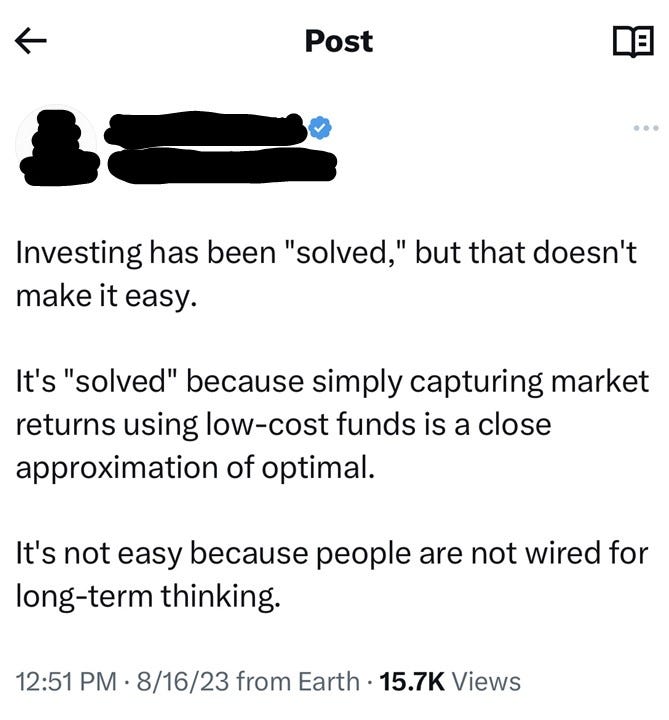
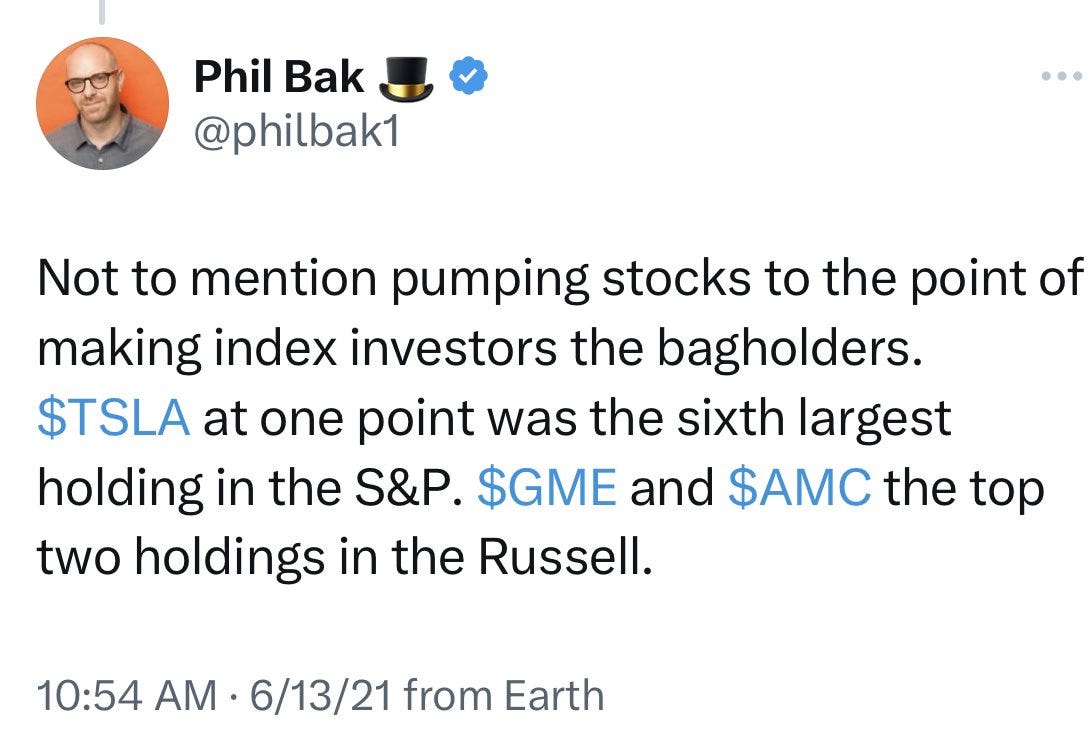
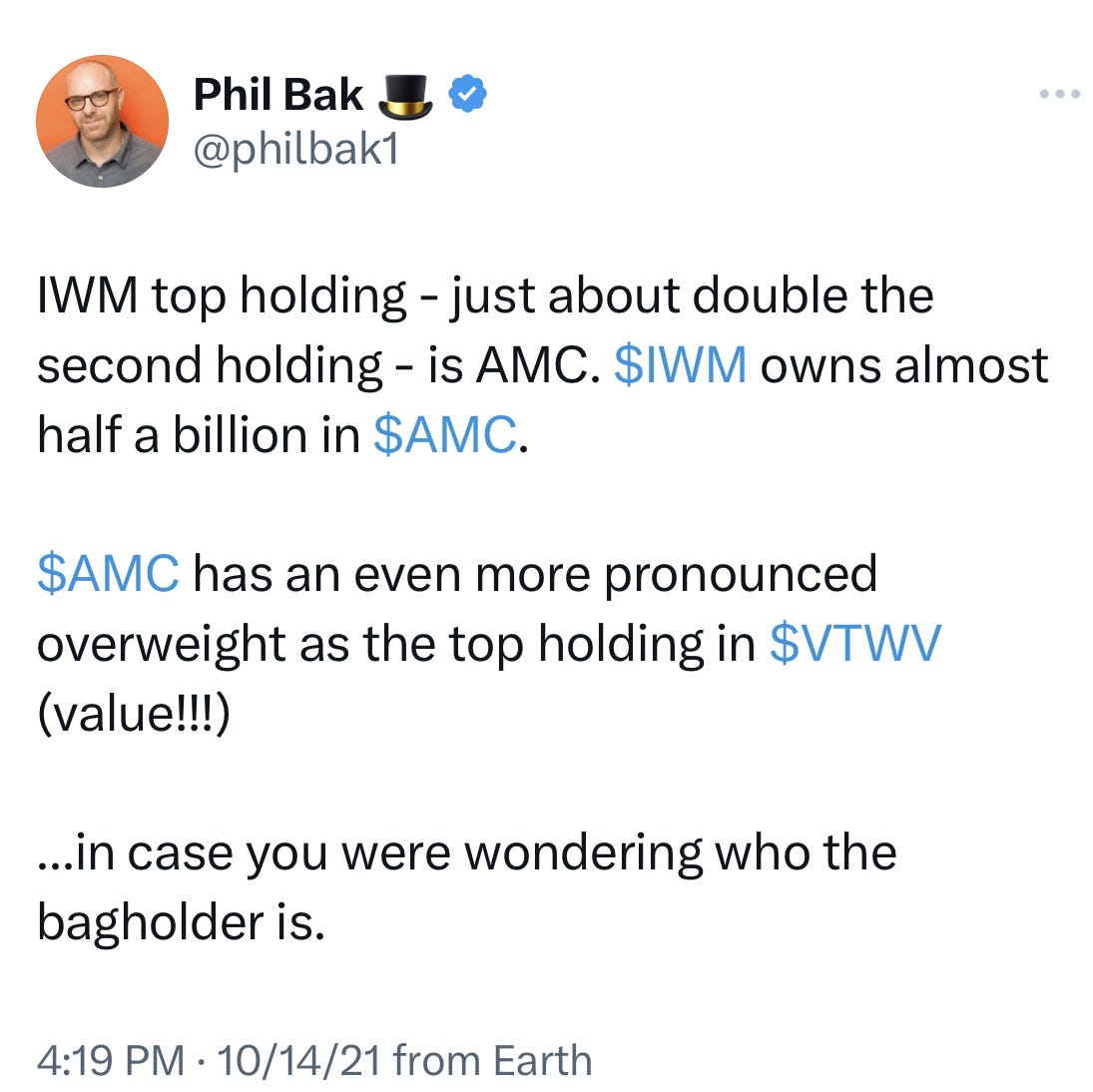
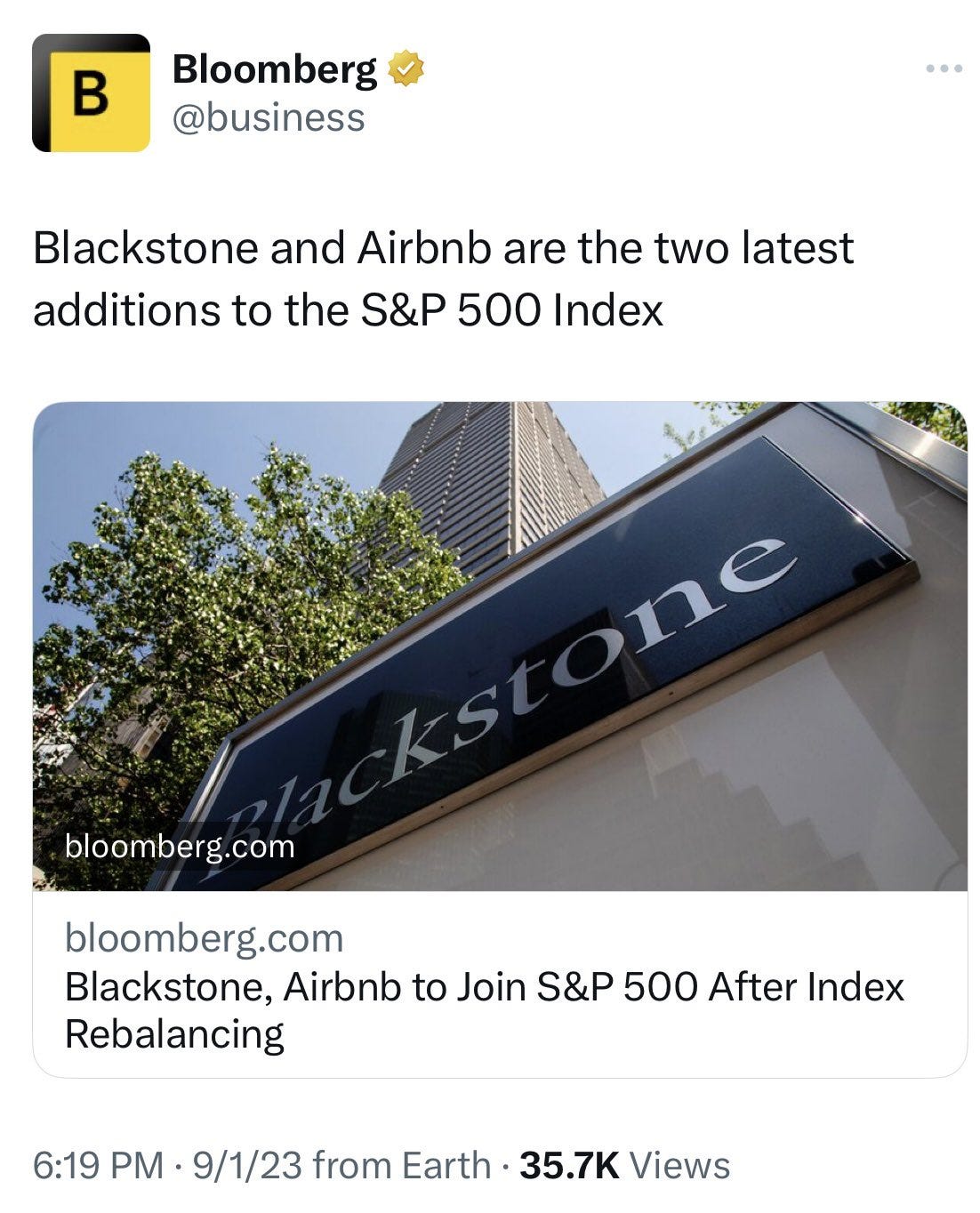
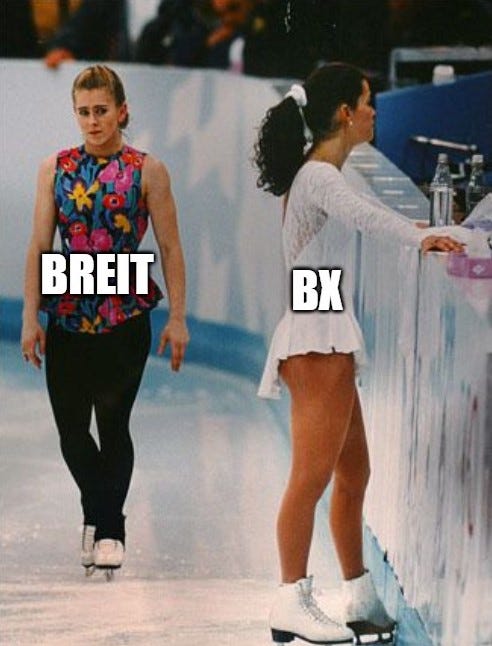
Excellent read, do you think Gresham's Law can also explain partly how some Fintwits guru have 100 thousands of readers posting quotes, fancy memes and momentum stocks, whilst deep research lags far behind?